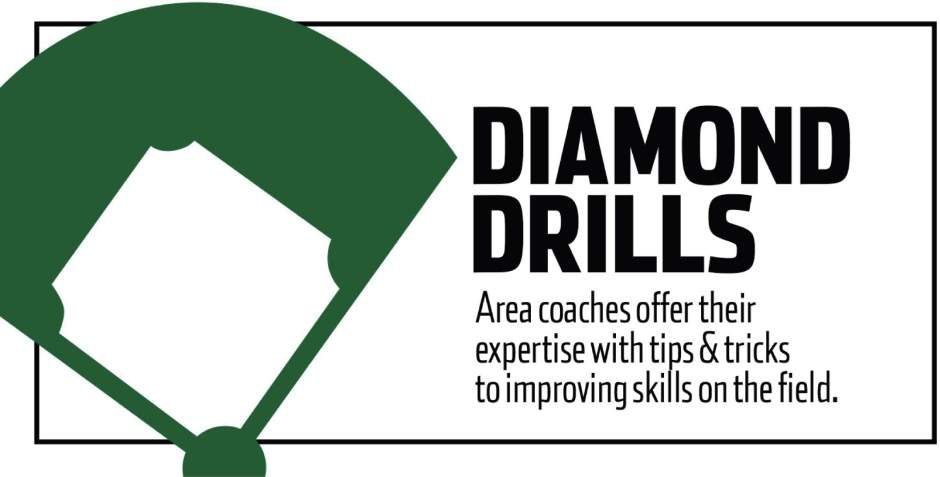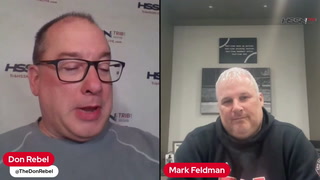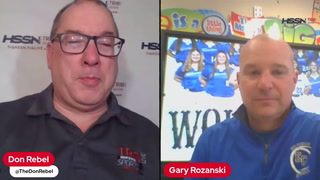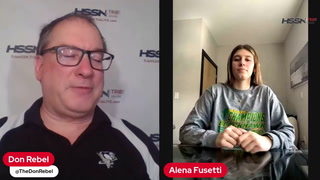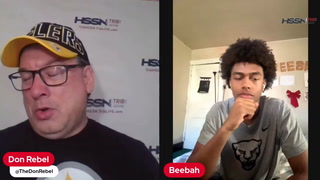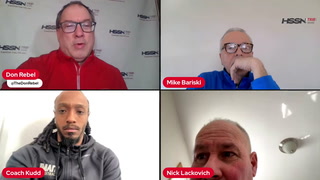Diamond Drills: Chartiers-Houston’s Alderson puts Bucs through ‘pressure cookers’
By:
Monday, May 14, 2018 | 12:48 AM
It seems appropriate coming off of Mother's Day that we turn the spotlight to a longtime, championship-winning coach on the field and mom away from the diamond.
As we are finding out from baseball and softball coaches throughout the district, a lot of these drills are not only to produce better results from a physical standpoint, but also to sharpen the mental edge for area players. As the late, great David Bowie once sang, when you are on the diamond in a big spot, you certainly don't want to crack “under pressure.”
The diamond sports of baseball and softball find their charm in that both can be very simple in nature. Pitch the ball, hit the ball, catch the ball. But for those of us who played the game, we know it is never that easy. So while we here at the TribLive High School Sports Network are proud to showcase these baseball and softball players each week with plenty of broadcasts and feature articles, there's more we can do. So we have turned to some of the top district coaches to help shed light on ways high school kids and younger can work on their craft to better improve their overall game and abilities.
On this edition of the weekly Diamond Drills, we get a little help from Tricia Alderson. She is in her 15th season as softball coach at Chartiers-Houston. She won two WPIAL championships in a Bucs uniform as a player and has led the Buccaneers to five more district crowns as coach. She is preparing Chartiers-Houston for the upcoming playoffs, perhaps using these drills.
Tricia Alderson explains what could be referred to as pressure cookers:
We are always looking for ways to simulate pressure at practice to help prepare the team for those types of moments in a game. It is as much mental preparation as it is physical.
Here is one thing we do to try to put pressure on kids at practice:
Often with our infielders, we use a timer and the players are fielding ground balls and throwing to first base on the field. We hit to the third baseman, then shortstop, second base, first base, and they just keep getting balls hit at them in that order fairly rapidly.
Normally, we set the clock at 5 minutes, but we may start out with a shorter time the very first time we do this. If there is any error at all within that time from anyone (missing the ball, bobbling the ball, bad throw, etc.), we start the clock again at zero and begin all over again.
Everything has to be clean.
The first few times we do this for the season, there is typically a lot of frustration among the players. They are upset, some heads might be down, it's quiet, and the players are a bit tight. No one wants to be the player who makes the clock start again and let their teammates down, especially when we are under a minute to go.
After working through the frustrations, what we have found is players start to pick each other up, even when the clock has to start again, and they eventually work through it with a lot of positive talk. As we go through the season, the speed of the balls coming at them picks up as well and the goal is to get to the point to where they are making plays consistently under pressure.
When you think about game situations, often times errors come in bunches from a team, or a player may turn one error into two, and then it snowballs with frustration. That's unfortunately when an inning can get away from you. Again, we are trying to simulate pressure and make it harder than the game itself.
We then will do 3 minutes of turning two with no errors, or some other modification of it (bases loaded situations, bunts, etc.). It all depends on how much time we have and what skills we are trying to work on in addition to being mentally prepared with the pressure of not wanting to start over. Sometimes we will just do middle infielders or corners for a specified time, or sometimes we will make it a competition between the middles and the corners.
These things can all be modified/varied in many different ways depending on the age and skill level of the players. The ultimate goal of these drills is to see how players react to adversity and help them to work through it together.
Don Rebel is a TribLIVE High School Sports Network broadcaster and staff writer. Reach him at drebel@tribweb.com.
More High School Baseball
• Hampton trio to play Division I baseball next season• GCC baseball coach Reist organizes fundraiser for team, less-privileged children
• Rivals from North Allegheny, Pine-Richland to join forces at Penn State
• Shaler Area’s Rispoli commits to play baseball at Dayton
• Hampton selects Long as new baseball coach

